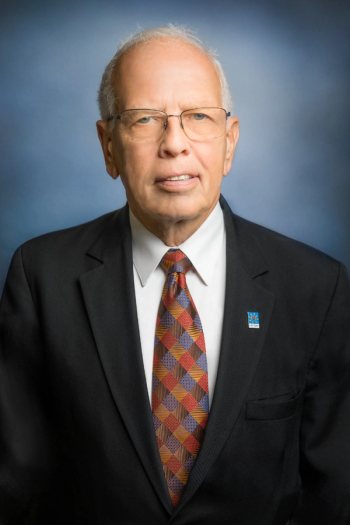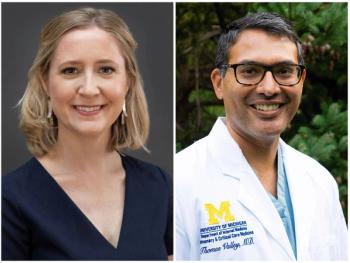
Ovarian cancer could be next application for CAR T-cell therapy
While CAR T-cell therapy has been proven to work for liquid-or blood-cancers, the challenge has been to apply this technology to solid tumors.
While CAR T-cell therapy has been proven to work for liquid-or blood-cancers, the challenge has been to apply this technology to solid tumors. That’s why Amit Kumar, PhD, president and CEO at ITUS Corporation, a San Jose, California-based cancer-focused biotechnology company, is working with researchers at Moffitt Cancer Center to determine if this therapy can be beneficial to women with ovarian cancer.
Managed Healthcare Executive (MHE) recently talked to Kumar to learn how this technology works and about the promise it holds for women diagnosed with ovarian cancer.
MHE: Tell us about using CAR T therapy for ovarian cancer and the promise it holds.
Kumar: The reason CAR T-cell therapy works for liquid-or blood-cancers is you can engineer T cells to go after a protein called CD19 on the surface of B cells. That has been very successful with two products already approved-with Yescarta from Kite Pharma and Kymriah from Novartis Pharmaceuticals-and several products being developed in clinical trials.
In solid tumors, such as ovarian cancer, there hasn’t been any demonstration of efficacy. One of the challenges has been that it’s hard to find a target protein on the surface of solid tumors that doesn’t exist anywhere else on healthy tissue.
MHE: How could your approach help with cancer treatment?
Kumar: Our technology, which we’ve licensed from the Wistar Institute, has identified a specific protein that fits that characteristic. That means that on ovarian cells in adult women the specific receptor-or protein-that we’re targeting with our engineered T cells is called the follicle stimulating hormone receptor. This is a protein that’s found only on ovarian cells in adult women. By targeting that protein, we’re not going to have our T cells target any healthy tissue.
With our CAR T, an antibody fragment binds to the receptor-that’s where we put the follicle stimulating hormone. That’s why we think this is going to be a very positive approach to the solid tumor model, which ovarian cancer is.
MHE: Could this method of treatment be used to treat other types of cancer?
Kumar: In addition, and this is at some point in the future, there are indications that the follicle stimulating hormone receptor is found on the blood vessels of other tumors, so blood vessels that are supplying nutrients to tumors of the prostate, pancreas, and lungs.
If this therapy works on ovarian cancer, we think it has a good opportunity to work on a number of other cancers as well.
MHE: How did you gain access to this technology that you’d like to use to treat ovarian cancer?
Kumar: We’re licensing this technology from the Wistar Institute, where the technology was developed through funding from the U.S. National Institutes of Health and other agencies. Now, we’re taking that technology over to the Moffitt Cancer Center, which is one of the top cancer centers in the United States and in the top five in the area of CAR T technology. They’ve invested in a tremendous amount in infrastructure to do the preclinical work as well as the clinical work on CAR T technology.
We’re going to do a sponsored research agreement, which means we’re going to fund the research there. Their researchers are going to do the work; we’re going to access all of their infrastructure, as well as the top scientists and physicians in the country that are working on CAR T.
It will cost us a little over a million dollars to do this research project that we hope will enable us to take this technology into the clinic, into clinical testing.
MHE: Who’s leading the research team that’s studying this?
Kumar: The lead researcher is Jose Conejo-Garcia, MD, PhD, who’s a co-inventor of the technology from his time as a professor at Wistar. A little over a year ago, he moved to the Moffitt Cancer Center and is now going to take the lead on getting this technology into human trials.
MHE: Where is this treatment for ovarian cancer in its journey?
Kumar: It’s still in the preclinical stage. Conejo-Garcia and his team have published the data on this technology in mouse models, demonstrating the efficacy of this technology to treat ovarian cancer. The plan at Moffitt Cancer Center is to complete Investigational New Drug (IND-) enabling studies. We have to complete those studies, which include a toxicity study, that then we will submit to the FDA; we expect that the FDA will approve taking this to the next step, which is into human testing.
We anticipate it will take us about 18 to 24 months to complete the IND-enabling studies, which will then be submitted to the FDA. Subsequent to that, we expect to work with human ovarian cancer patients. This will most likely be refractory patients-or patients who have had every other approved therapy attempted and really don’t have much hope.
We’d like to have this treatment available for women in clinical trials by the middle to the end of 2019. Depending on how well those clinical trials and the FDA approval process go, we anticipate probably another year to two years for this therapy to be generally available. We’re still looking at three to four years at least before it becomes a product.
Newsletter
Get the latest industry news, event updates, and more from Managed healthcare Executive.























